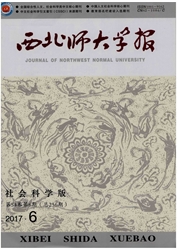

 中文摘要:
中文摘要:
认知吝啬产生于人类的思维过程。在判断与选择的过程中,受限于个体的认知能力差异以及客观情形的复杂性,人们往往很难做到"完全的理性",而是"吝啬"于自身的认知能力做出决策。但是,认知吝啬又不同于"奥卡姆剃刀"(朴素原则或吝啬原则)、马赫的"思维经济"以及爱因斯坦所说的简单性原则,其独特的表现形式是表征性谬误和定锚谬误。从进化论角度讲,认知吝啬有其存在的必然性,它是社会认知的基础,较为准确地解释了"认知偏见"。
 英文摘要:
英文摘要:
Cognitive miserliness is produced in human's thinking process.In the process of making judgments and selections,and limitations of the individual cognitive ability differences and the complexity of the objective circumstances,it is often difficult to achieve "complete rationality",but "mean" to make decisions on their own cognitive ability.However,cognitive miserliness is different from the "Occam's razor(simplicity principle or the miserly principle),Mach's "Economic thinking",as well as the Simplicity principle by Einstein,which has its unique form of expression:Representative fallacy and anchoring fallacy.From an evolutionary point of view,cognitive miserliness has its necessity of existence,is also the foundation of social cognition,and well explains the "cognitive bias".
 同期刊论文项目
同期刊论文项目
 同项目期刊论文
同项目期刊论文
 期刊信息
期刊信息
